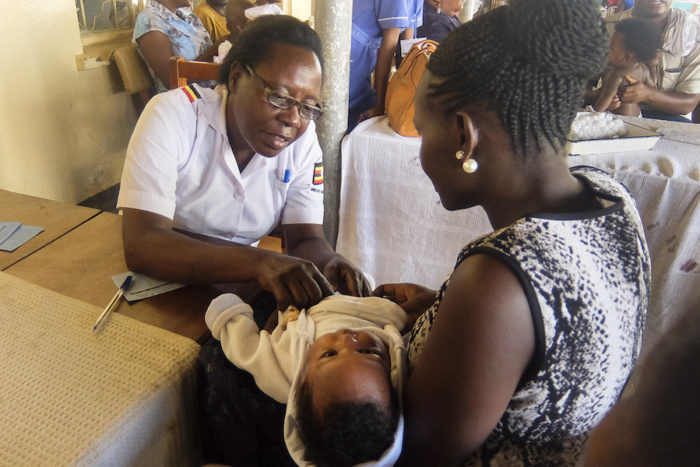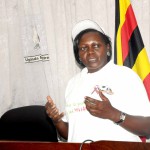Government has intensified measures to contain the spread of measles, whose outbreak in Kampala and Wakiso districts was confirmed late July.
The Director General of Health Services Prof. Anthony Mbonye, said those most affected are children under one year, and that the health ministry is investigating the extent of the spread within Kampala and Wakiso, and conducting sensitization to educate the public on the early symptoms and dangers.
“All the 5 Divisions of Kampala as well as several suburbs in Wakiso are affected,” Dr. Mbonye, says in the press statement, adding that the Ministry’s surveillance and case finding reports had identified a total of 67 cases, of which seven were confirmed by laboratory tests.
The Ministry also intends to roll out immunization programs for children and manage suspected cases, Mbonye says, and also urged people to avoid getting into direct contact with children infected or suspected to be infected with the disease.
Measles is an airborne disease that mainly affects children aged between 6 to 10 months, but can also affect adults. The mode of transmission of the measles virus is through air and physical contact with an affected person.
Early symptoms of measles include high fever, whooping cough, red swelling eye lids, muscle and body aches, irritability, running nose, eagerly eyes and rashes.
These early symptoms often last 3 to 4 days and the most effective way of prevention is through the measles vaccine which has resulted in a 75 percent decrease in deaths from measles between 2000 and 2013.
The dense population in the highly urbanized districts of Kampala and Wakiso coupled with the fact that several people move in and outside the capital city could put the risk of transmission very high both within and in the countryside.
Measles attacks about 20 million people a year, mostly in Africa and Asia. Health experts say the disease accounts for an estimated 777,000 childhood deaths per year worldwide, with over half of these deaths occurring in Africa. Apart from death, children who are affected by measles may suffer from life-long disability including brain damage, blindness and deafness.
As part of a global effort to reduce measles deaths, the United Nations Children’s Fund in Uganda launched a massive immunization campaign in the year 2001 with the goal of reaching 1 million children under the age of five in hard-to-reach communities.
However, the World Health Organization and UN Children’s Fund (UNICEF) report that Uganda’s national measles immunization coverage declined from 71 percent in 2006 to 55 percent in 2010.
They said inadequate funding, a shortage of health staff and poor adherence to vaccination schedules are some of the reasons for declining immunization levels in Uganda, which experts say threatens efforts to reduce preventable deaths among children.







